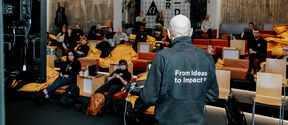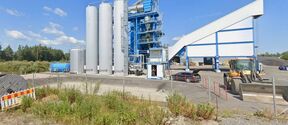Big data enters the social sciences
Big data came to social sciences
When you use Facebook, you probably mainly think about what you want your friends to know about you. But at the same time you produce data – huge amounts of data. Along with your friends, researchers are also increasingly interested in that and a lot of other data that you produce. Big data provides answers and models regarding how society works.
Since this is a matter of social sciences, researchers delve into the nature of social actors and their mutual relationships. However, the tools are more familiar from the world of natural sciences.
Social media was popular during the conference. Read the tweets: #ICCSS2015.
Computational social sciences analyse and model social phenomena by calculating information from large amounts of data. The tools employed by researchers include computer simulations, artificial intelligence and various complicated statistical methods.
Researchers are interested in big data because collecting data has traditionally been a problem in social sciences. As a general rule, questionnaires and other types of monitoring can only provide insight into the behaviour of a small group of people.
A particularly fascinating topic at this time is how people function in social media. This shows how friends and the other people around an individual affect that person's activities.
Computational social sciences highlighted for the first time
Although this is quite a new branch of science, Aalto became involved immediately. Aalto University hosted the International Conference on Computational Social Science, ICCSS 2015, at the beginning of June.
A unique element in this conference was the fact that, for the first time ever, a large group of names from different areas of science came together at the same time. The conference was attended by experts in the fields of sociology, behavioural sciences, cognitive science, agent modelling theory, information processing, economics, mathematics, and physics. Conferences in the field usually attract either sociologists or information processing researchers.
- We had the privilege of organising the first conference in the world because different bodies in Finland cooperate well with each other. Universities and companies prefer working together to support a good project that is beneficial to everyone in the country, says Professor Santo Fortunato from Aalto University, who was responsible for the conference arrangements. Santo Fortunato is happy with the outcome.
Aalto has been involved in this field of research almost since the beginning of its development. The university has built good networks and now uses them.
The conference held at Finlandia Hall represented a major effort for Aalto. More than 400 people from over 40 countries arrived for the conference.
Aalto is at the forefront of the field
Many projects in the computational social science field are in progress at Aalto University.
Fortunato has already searched for communities within networks in different studies. For example, he has analysed data to determine the length of time before a scientist can hope to receive a Nobel Prize. Over the past decades, that time has become longer and longer.
Kimmo Kaski, Jari Saramäki, János Kertész and Robin Dunbar have looked for friend networks from a group of eight million users. The researchers analysed how age, gender and geographic location affect the formation of friend networks.
Rafael Barrio, Kimmo Kaski and Robin Dunbar have also examined models of opinion spreading: how an opinion spreads in a network of people and how the network structure develops. The research has also examined how people lie to each other about their opinions.
Pictures from the conference on Flickr.
Pictures: Aalto University / Mikko Raskinen & Sinem Kayacan.
Read more news
Online Writing retreats for doctoral students in Finnish in spring 2026
Join the monthly communal meetings for research reporting.
Training available in AI, research data management, research ethics + more – register now!
New topics included! Registrations for spring 2026 are open.
New Innovation Postdoc programme launching this spring in Aalto
Innovation Postdoc launching this spring for AI researchers eager to turn cutting-edge research into real-world impact.






